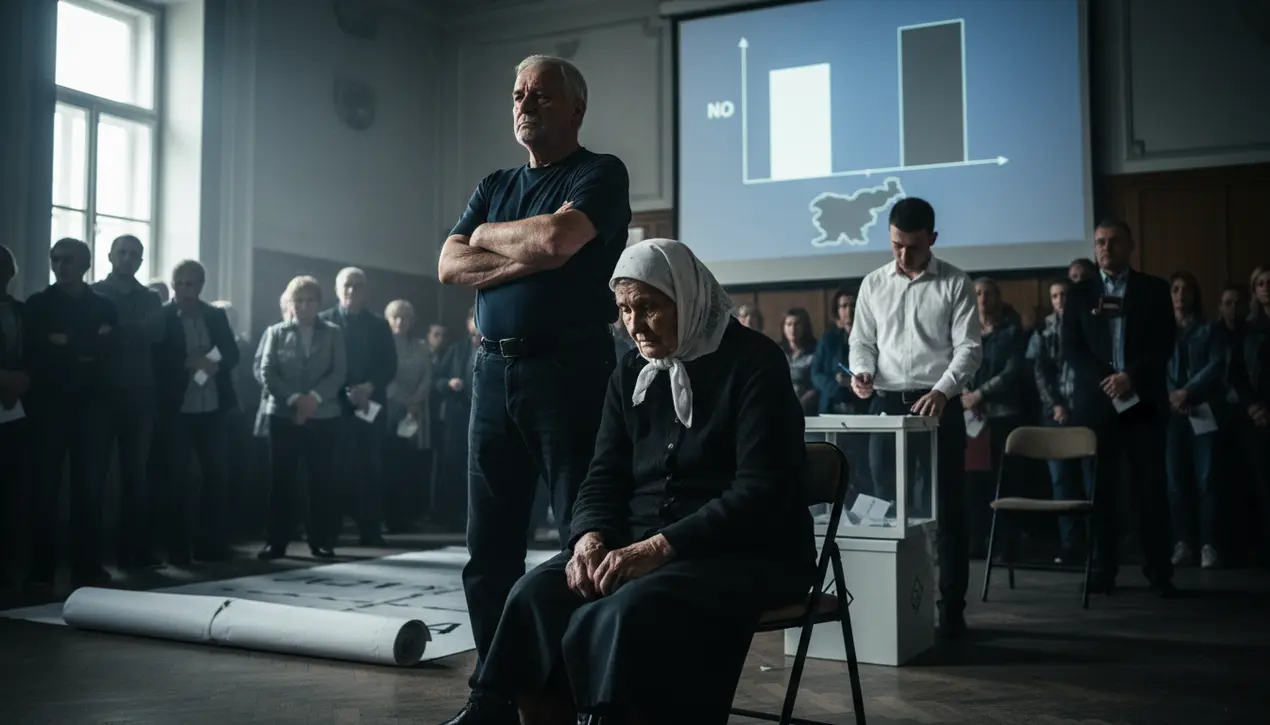
Politicscourts & investigations
Slovenia referendum rejects law to legalise assisted dying.
AN
Anna Wright
56 minutes ago7 min read
In a deeply revealing societal decision, Slovenians have spoken through a referendum that suspends a new law to legalise assisted dying, with approximately 53 percent of voters rejecting the legislation against 47 percent in favour, a result that halts its implementation for at least one year and lays bare the profound cultural and ideological fissures within this European nation. This vote, held after critics mounted a vigorous campaign, represents a dramatic reversal from the 2024 referendum where citizens initially supported the principle, a mandate that Slovenia’s parliament had acted upon by approving a law in July.The powerful mobilisation against the law, spearheaded by civil groups and significantly bolstered by the influential voice of the Catholic Church, underscores a classic struggle between individual autonomy and collective moral frameworks, a theme I often explore in the context of how social policies are shaped not just by legislation but by the personal convictions and power dynamics of key societal actors. This outcome in Slovenia resonates far beyond its borders, echoing historical debates seen in countries like Portugal and Ireland where religious institutions have played pivotal roles in referendums on deeply personal social issues, forcing us to ask critical questions about whose voices are amplified in these democratic processes and whose are marginalised.The suspension creates a complex legal and ethical limbo, leaving patients facing terminal illnesses in a state of profound uncertainty and highlighting the very human cost of such political delays; it is a stark reminder that policy is never abstract but is written on the bodies and lives of real people. From a feminist perspective, this debate is particularly poignant, as the right to choose the manner and timing of one's death is intrinsically linked to bodily autonomy, a cornerstone of feminist thought that challenges patriarchal structures—often embodied by institutions like the church—that seek to control such fundamental decisions.The narrow margin of the vote, however, suggests that Slovenian society is far from a consensus, indicating a nation grappling with its modern identity, caught between secular, progressive values and traditional, religious influences, a tension that will undoubtedly fuel further political and social discourse in the coming year and likely lead to another emotionally charged campaign. The personal impact on leaders who championed this law, and the activists on both sides who invested their hearts into this fight, cannot be overstated; their stories of conviction and loss are the human threads in this larger tapestry, reminding us that behind every percentage point in a referendum result are individuals confronting mortality, faith, and the very meaning of a dignified life.
#Slovenia
#assisted dying
#referendum
#law suspended
#Catholic Church
#ethics
#legislation
#featured
Stay Informed. Act Smarter.
Get weekly highlights, major headlines, and expert insights — then put your knowledge to work in our live prediction markets.
Comments
Loading comments...
© 2025 Outpoll Service LTD. All rights reserved.